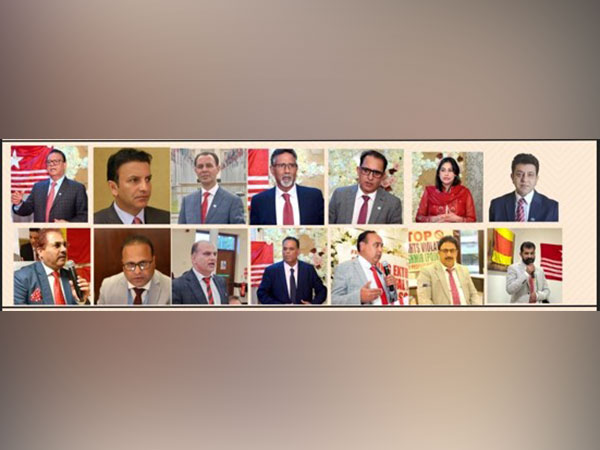Propaganda central to CCP for mass deception, COVID-19 outbreak accusations
May 30, 2021

Beijing [China], May 30 : Propaganda has been used widely by China as a weapon in terms of the COVID-19 outbreak and mass deception, as per reports.
According to The Asia Times, since the birth of the Communist Party of China, propaganda has been one of its most powerful tools. From Mao Zedong to Xi Jinping, propaganda has always been an integral part of their control of public opinion and elevate their status to cult-like figures among the masses in China.
In short, propaganda is central to the operation of the Chinese system of government. With the coming of Xi and his use of sophisticated technology, it has now become what Patricia Thornton of Oxford University aptly calls the "technocratic engineering of public opinion."
However, the CPC has also employed propaganda to justify, or deny, its acts of enforced assimilation and repression in the occupied states of Tibet, East Turkestan (Xinjiang) and Southern Mongolia and justification for the implementation of the Hong Kong National Security Law.
The release last week of a white paper on Tibet is an attempt by the Communist Party of China to whitewash the ground reality through propaganda.
When Tibet was invaded by CPC-controlled China in 1951, it was publicized as the liberation of Tibet by what was then known as the Red Army. Ever since, the CPC has mastered the art of euphemism, reported The Asia Times.
The late Tibetan academic Dawa Norbu wrote, "What the Chinese team told the Sakya Lama and the local authorities in 1953 by way of explanation for their intrusion was the substance of official Chinese policy in Tibet for the next few years."
The settlement between China and Tibet was made to appear like a mutual agreement between the two governments.
In terms of COVID-19 pandemic, last year CPC-affiliated media such as the Global Times and CPC-sponsored Internet soldiers to counter major narratives that were against the Party's interests.
Amid the pandemic, Twitter became one of the platforms for its defensive and offensive propaganda.
The language used by officials of the Foreign Ministry and their online behavior was so aggressive in nature that it was dubbed Wolf Warrior diplomacy.
Because of the intensity and insensitivity of some posts by Chinese government officials, Twitter decided to label their accounts. Soon afterward, Twitter decided to label most of the accounts managed by the five permanent members of the UN Security Council.
Recently, Foreign Ministry spokeswoman Hua Chunying decided to share on her Twitter account an article in The Washington Post by Cary Wu, a professor of sociology at York University in Canada.



















